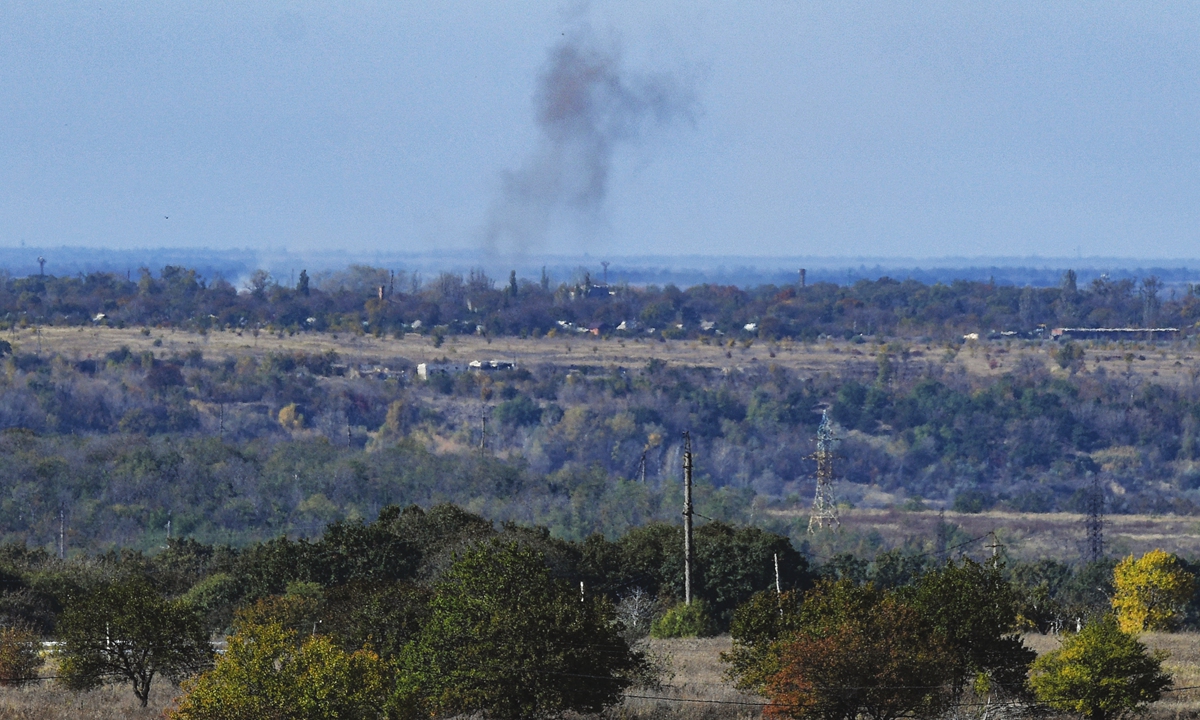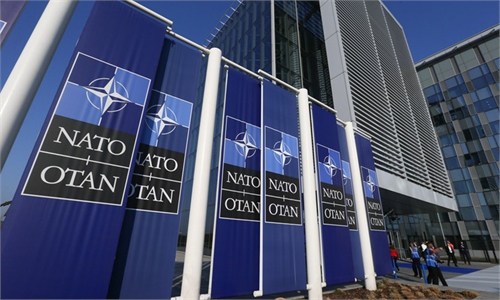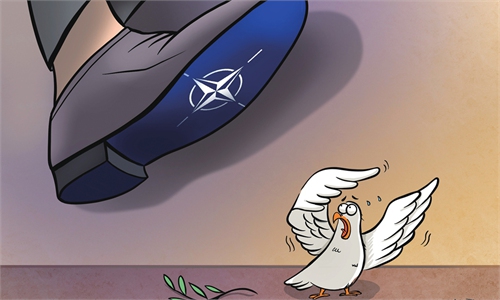NATO chief's hyping China, Russia threats will not alleviate US' fatigue in aiding Ukraine: expert

Smoke rises above the area of the frontline town of Avdiivka, Ukraine on October 18, 2023. Photo: AFP
NATO chief Jens Stoltenberg is attempting to link Ukraine with the Taiwan question to upgrade the narrative of the "China threat" to persuade the US to maintain support for Ukraine, which Chinese analysts criticized as fanning confrontations globally and will not help overcome Western fatigue over support for Kiev.
Stoltenberg, secretary-general of NATO, is visiting the US from January 27 to February 1. During his stay in the US, the NATO chief repeatedly mentioned the allied support to Ukraine against Russia while meeting with Secretary of Defense Lloyd Austin and US Secretary of State Antony Blinken, according to releases from NATO.
While addressing supporting Ukraine is "an investment" in the West's own security and "serves US interests," Stoltenberg mentioned China on multiple occasions. In his meeting with Austin and in an interview with Fox News, Stoltenberg claimed that China is closely watching how long the US and Europe can maintain support for Ukraine. "Today it's Ukraine, tomorrow it may be Taiwan," he said.
The strategy of linking Ukraine to the Taiwan question, which are fundamentally different, aims to persuade people in the US to continue providing aid to Ukraine, Cui Heng, a scholar from the China National Institute for SCO International Exchange and Judicial Cooperation, told the Global Times on Tuesday.
Concerns regarding support for Ukraine have been mounting in the US and the West, with many fearing the extensive cost it has taken on their respective nations. In contrast to the waning interest in the Ukraine crisis, numerous US politicians have shifted their focus toward the Taiwan question, said Cui, noting that exploiting the narrative of so-called threats from China and Russia, Stoltenberg seeks to garner as much support as possible.
During a press conference held on January 11, John Kirby, Coordinator of the White House National Security Council, said that the provision of military aid from the US to Ukraine has been suspended. He claimed that this development would undoubtedly please Russia, saying it would be "music" to their ears. The future provision of assistance is contingent upon the decision of the US Congress, as they must endorse an additional request for national security funding in order to proceed.
Cui noted that Stoltenberg aims to make necessary preparations for the commencement of the US election period. With former president Donald Trump, a strong contender for the Republican candidacy, potentially competing against President Joe Biden, there is apprehension within NATO and some Western countries that a Trump victory will result in a resurgence of the "America First" policy, leading to a complete cessation of aid to Ukraine.
No matter how hard the NATO chief emphasizes the threats posed by China and Russia, it is challenging to alleviate the weariness of the US and the West in supporting Ukraine, analysts said.
They noted that as the Russia-Ukraine conflict approaches its second anniversary, NATO's persistent tactics of exacerbating tensions and instigating conflicts worldwide only serve to destabilize the region.


